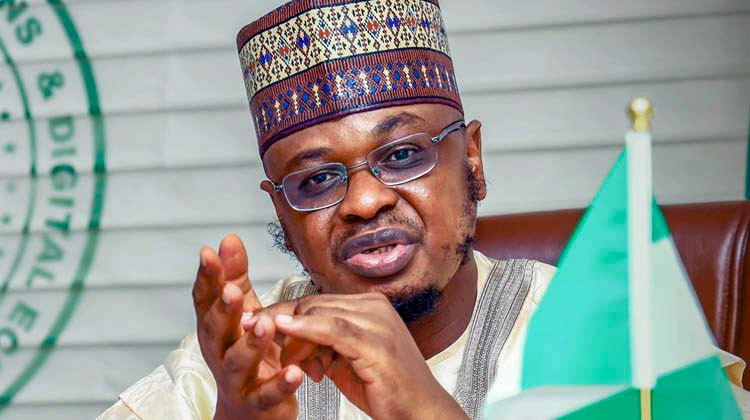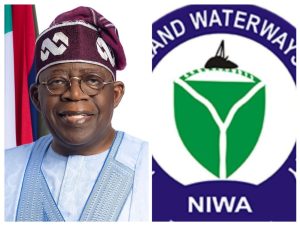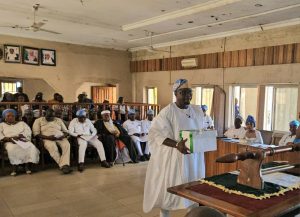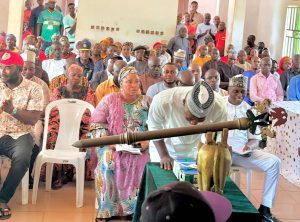2023 Presidential Elections: MoCDE Foils 12.9m Cyberattacks in Four Days

The Ministry of Communications and Digital Economy (MoCDE) says it succeeded in stopping 12,988,978 attempts at cyberattacks during the period of the just-concluded Presidential elections held in the country.
The Minister of Communications and Digital Economy, Professor Isa Ali Ibrahim Pantami, said this while laying out the Ministry’s activities towards ensuring a safe and secure cyberspace for Nigerians before, during, and after the 2023 Presidential Elections.
According to the Minister, a total of 12,988,978 attacks were recorded, originating from both within and outside Nigeria. However, the centers set up by the Ministry successfully blocked these attacks and/or escalated them to the relevant institutions for appropriate action.
Pantami explained that in preparation for the expected attacks, his ministry had set up extra strategic precautionary measures to ensure its mandate in cybersecurity is achieved.
“As part of its mandate, the Federal Ministry of Communications and Digital Economy is expected to ensure adequate protection of Nigeria’s cyberspace to a level that citizens will have confidence in digital services. This mandate aligns with the goals and objectives of the National Digital Economy Policy and Strategy for a Digital Nigeria (NDEPS).
In line with this mandate and in our efforts at supporting the initiatives of securing the Nigerian cyberspace, the parastatals under the supervision of the Ministry have established Cybersecurity Centres, namely, the National Information Technology (NITDA)’s Computer Emergency Readiness and Response Team (CERRT), the Nigerian Communications Commission (NCC)’s Computer Security Incident Response Team (CSIRT), and Galaxy Backbone (GBB)’s Security Operations Centre (SOC).”
According to a statement by the Spokesperson to the Minister, Uwa Sulaiman, these Centres were established between 2020 and 2022 in line with the Minister’s policy directives and have been monitoring Nigerian cyberspace for potential threats and taking appropriate actions to mitigate them, both individually and collectively as well as in collaboration with other stakeholders.
“The Minister of Communications and Digital Economy, as a Professor of Cybersecurity and one that is very passionate about ensuring a safe and secure cyberspace, directed all the parastatals to enhance their 24/7 monitoring of the networks and traffic for potential attacks from February 24, 2023 to February 27, 2023.
“It is worth noting that in the run-up to the 2023 General Elections, threat intelligence revealed an astronomical increase in cyber threats to Nigerian cyberspace. Generally, threats to public websites and portals averaged around 1,550,000 daily. However, this skyrocketed to 6,997,277 on Presidential Election Day,” the statement revealed.
On February 24, 2023, the Minister inaugurated the Ministerial Standing Committee on Advisory Role for the Protection of Nigerian Cyberspace and ICT Infrastructure. The Committee, chaired by the Board Chairman of NCC and with the CEOs of NCC, NITDA and GBB as members, was charged with the following responsibilities, among others:
- Monitoring of Telecommunication Infrastructure for the successful conduct of credible, free, fair, and transparent elections;
- Developing and implementing plans to enhance the resilience of critical digital infrastructure against cyber threats;
- Designing procedures and using technologies to prevent, detect, and respond to cyber-attacks, as well as developing the ability to recover from any damage that is done quickly;
- Developing a comprehensive risk assessment, analysing the nation’s current cybersecurity capabilities, and identifying gaps that need to be addressed; and
- Providing professional advice to the Government on the effective utilisation of digital technologies in the conduct of the 2023 General Elections.
The Committee’s activity started on February 24, 2023 and ended on February 28, 2023. During this period, a series of hacking attempts were recorded, including Distributed Denial of Service (DDoS), email and IPS attacks, SSH Login Attempts, Brute force Injection attempts, Path Traversal, Detection Evasion, and Forceful Browsing.
While commending theall stakeholders in the digital economy ecosystem for their support that resulted into what it called an “unprecedented success”, the statement from the Ministry further said that “The parastatals, under the supervision of the Ministry of Communications and Digital Economy, have played a crucial role in providing the enabling environment for the successful conduct of a credible, free, fair, and transparent election.”
Attributing the attainments to the move towards ensuring Nigeria’s successful transition into the digital economy by administration of President Muhammadu Buhari, Pantami said the digital economy sector has enjoyed continued support of the President and it is highly appreciated. He also hopes that lessons learned during the process will be put to effective use in subsequent elections.





